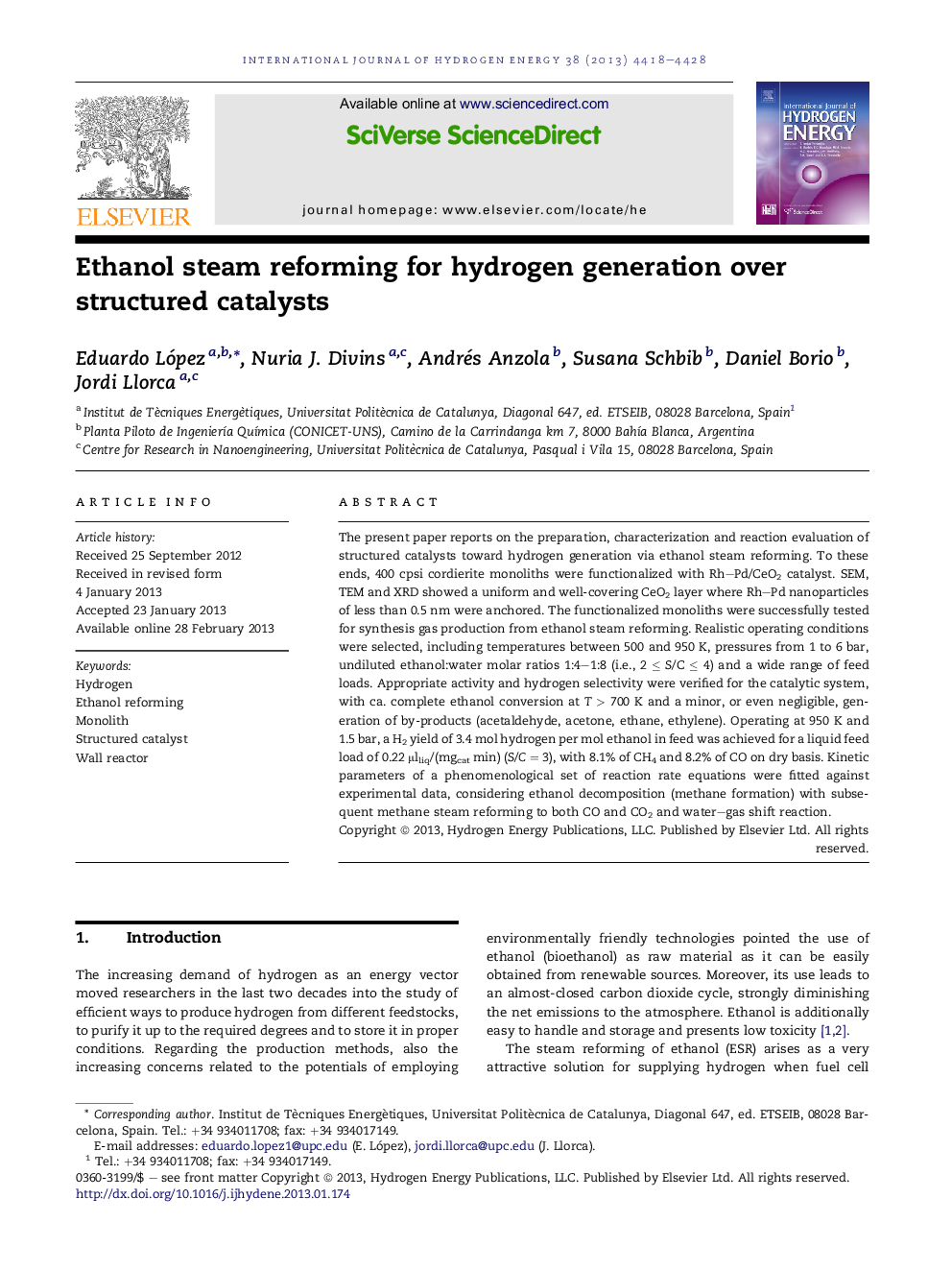| Article ID | Journal | Published Year | Pages | File Type |
|---|---|---|---|---|
| 1278135 | International Journal of Hydrogen Energy | 2013 | 11 Pages |
The present paper reports on the preparation, characterization and reaction evaluation of structured catalysts toward hydrogen generation via ethanol steam reforming. To these ends, 400 cpsi cordierite monoliths were functionalized with Rh–Pd/CeO2 catalyst. SEM, TEM and XRD showed a uniform and well-covering CeO2 layer where Rh–Pd nanoparticles of less than 0.5 nm were anchored. The functionalized monoliths were successfully tested for synthesis gas production from ethanol steam reforming. Realistic operating conditions were selected, including temperatures between 500 and 950 K, pressures from 1 to 6 bar, undiluted ethanol:water molar ratios 1:4–1:8 (i.e., 2 ≤ S/C ≤ 4) and a wide range of feed loads. Appropriate activity and hydrogen selectivity were verified for the catalytic system, with ca. complete ethanol conversion at T > 700 K and a minor, or even negligible, generation of by-products (acetaldehyde, acetone, ethane, ethylene). Operating at 950 K and 1.5 bar, a H2 yield of 3.4 mol hydrogen per mol ethanol in feed was achieved for a liquid feed load of 0.22 μlliq/(mgcat min) (S/C = 3), with 8.1% of CH4 and 8.2% of CO on dry basis. Kinetic parameters of a phenomenological set of reaction rate equations were fitted against experimental data, considering ethanol decomposition (methane formation) with subsequent methane steam reforming to both CO and CO2 and water–gas shift reaction.
► Pd–Rh/CeO2 cordierite monoliths for hydrogen generation by ethanol steam reforming. ► Uniform and well-covering CeO2 layer and Pd–Rh nanoparticles of less than 0.5 nm. ► H2 yields of 3.4 mol H2 per mol EtOH in feed under realistic operating conditions. ► Kinetic parameters of empirical reaction rate equations fitted from exp. data.
